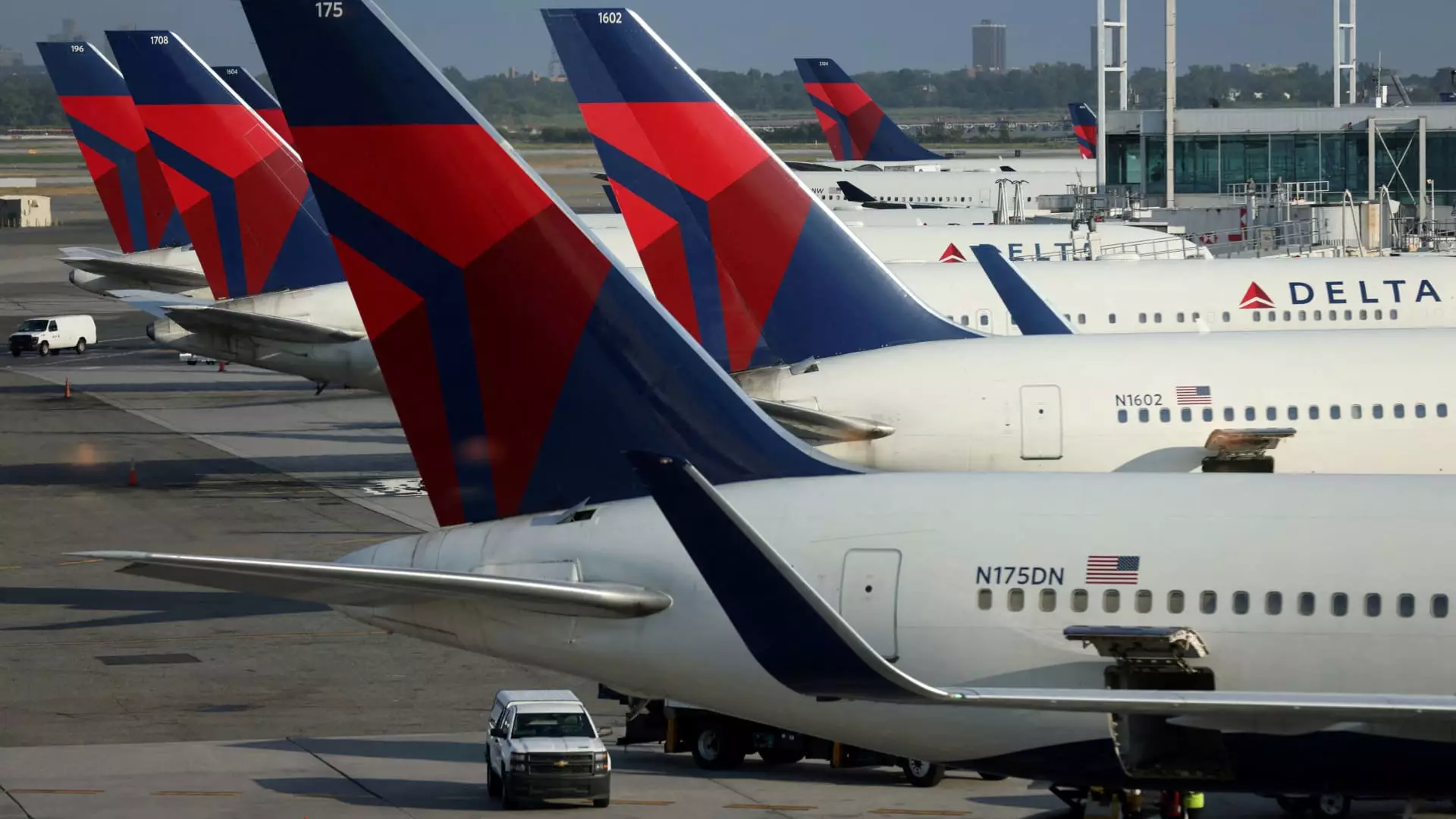In a dramatic legal move, Delta Air Lines has filed a lawsuit against cybersecurity firm CrowdStrike, highlighting significant operational disruptions stemming from a software malfunction. The incident occurred in July and had devastating implications for the airline, leading to the cancellation of 7,000 flights and a staggering financial hit. According to Delta’s claims, the company reported an estimated revenue loss of $380 million, compounded by an additional $170 million in expenses. Such a dire situation raises questions not only about the immediate fiscal impact of the outage but also about the long-term implications for Delta’s operational integrity and customer trust.
Delta’s lawsuit shines a spotlight on the specific circumstances surrounding the software failure. It was a problematic update that restricted numerous computers within the airline from functioning properly, particularly those operating on Microsoft’s Windows platform. Unlike some of its competitors, Delta struggled significantly in recovering from the incident, which speaks to potential shortcomings in its contingency planning. In the aftermath, Delta sought the expertise of high-profile attorney David Boies, indicating the seriousness of the situation and their commitment to pursuing substantial damages.
The crux of Delta’s complaint lies in allegations of negligence and breach of contract against CrowdStrike. In their legal documents, Delta asserts that the cybersecurity firm compromised their systems by deploying a flawed update without adequate testing, calling into question CrowdStrike’s commitment to quality assurance and safety protocols. The lawsuit quotes Delta’s assertion that had even a basic testing procedure been conducted, the failure could have been identified and prevented. This evokes broader discussions about the often-overlooked importance of rigorous software testing, particularly in sectors like aviation where stability is paramount.
In response to the incident, CrowdStrike has shown signs of accountability, with CEO George Kurtz expressing regret while indicating a shift in the company’s operational practices to avoid similar debacles. Moreover, the company adjusted its financial outlook for the year due to the fallout from this incident, signaling potential long-term ramifications for its business. This incident, though a single event, can affect CrowdStrike’s reputation and client trust—factors crucial for success in the highly competitive cybersecurity market.
As this legal battle unfolds, both Delta Air Lines and CrowdStrike face significant challenges. For Delta, the stakes are high as they navigate the financial and reputational damage from the outage. Meanwhile, CrowdStrike’s response and subsequent operational changes will be crucial to maintaining stakeholder confidence. The lawsuit serves as a reminder of the vital role that accountability plays in business partnerships, particularly in industries where technological failures can have catastrophic effects. Moreover, it emphasizes the need for robust testing and compliance system in software development, an issue that demands industry-wide attention to avert future crises.

